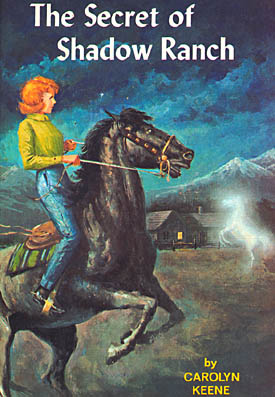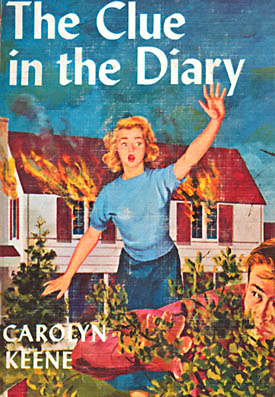Martha now gives her views on the three Lauren Oliver books starting with Delirium. I know this book (and its two sequels) is super popular, but I resisted for a looong time because I'm sort of over dystopias at this point. However, I have to say that compared to its more popular Hunger-Games-ripoff cousin, Divergent, I liked Delirium a LOT more, and wish that this, and not Divergent, was the novel getting a movie adaptation. For those of you who haven't read it, this is the story of Lena and Alex, two teenagers in a society where love is considered a sickness and at 18 everyone is cured of the disease. A real upper, obviously. As I'm sure you can guess, Lena and Alex fall in love, and then must decide what to do with the date of Lena's cure rapidly approaching. I have to admit, one thing that bothers me about this current dystopia craze is that I think a lot of them kind of forget that the real point of dystopias is to make some sort of comment about our current society - see 1984, The Handmaid's Tale, even The Hunger Games. I am not entirely sure what sort of astute commentary one can get from a novel about a society where love is outlawed. HOWEVER, having said that, I'm going to stop being a grouch, because I still really enjoyed this book. It's hard to put down once you get into it, and since I was listening to it on audiobook (the reader is Sarah Drew, who Grey's Anatomy fans like myself [yes, STILL watching that show] will know best as April Kepner, and she does a pretty good job - it helps that she has a young-sounding voice so I totally buy her as a teenager) I actually sat in my parking lot for like 10 minutes one night because I didn't want to stop listening. I was spoiled on the ending in advance, but still ended up crying in my car, which I suppose is a compliment to the author. Anyway, I just picked up the sequel from the library and can't wait to read it. If you're looking for a quick, engrossing read, I'd recommend this - it also helps that Lauren Oliver writes beautifully, so even if you are experiencing dystopia fatigue, you can still enjoy the writing.
Pandemonium This is the sequel to Delirium, and I'm really glad I decided to read this instead of listening to it on audiobook like I did with the first one, because it was a REALLY fast read and really hard to put down. Anyway, it picks up where Delirium left off, with Lena out in the Wilds and follows her as she meets up with other Invalids and joins the resistance. There's also the introduction of a second love interest, which I didn't hate as much as I thought I was going to. Look, these books are never going to be the most original things on the face of the planet - the market is so saturated with dystopias at this point that it's impossible for any of them to feel truly fresh, I think - but Lauren Oliver is a fantastic writer, and the quality of her writing manages to elevate books with a somewhat tired premise to something very intriguing and beautiful (which was absolutely the case with her first novel, Before I Fall, as well). Teenage girls would love this, and it's a great book to give to any patrons who have finished The Hunger Games and want help finding something similar to read. If you haven't gotten 100% sick of dystopias, I'd recommend giving this series a shot - I'm not sure I liked Pandemonium quite as much as Delirium, but it was still a good read.
Requiem This is the final book in the trilogy that started with Delirium, and I thought it was a really good conclusion. The parallels to The Hunger Games seem especially obvious in this installment, including the dreaded love triangle (though I will say the circumstances that led to this one were less infuriating than most love triangles I've ever read, and Oliver managed to make the whole thing [which I still think is a stupid plot device] seem understandable and also make Lena seem less selfish than most protagonists involved in love triangles usually seem [which is my #1 issue with love triangles]). Anyway, if you're a reader who needs 100% closure and wants all the loose ends tied up, this might not be the book for you - Oliver doesn't particularly care whether you want to know exactly what happens to everyone or how every event will turn out. But this is what I liked best about this book. If she HAD tied everything up, I think I would have found it rushed (like I found the ending of Mockingjay, for example). Instead, she leaves a lot of questions unanswered - which is a bit frustrating, but also part of the fun of reading, in my opinion. Now, finally, please excuse me while I revert to being a 16-year-old again for five seconds, because the final thing I have to say about this book is: LENA + ALEX 4EVA. This concludes my highly intellectual and thoughtful review.
Here's Martha's reaction to a little non-fiction action by Tina Fey. I've been wanting to read this for a while, and I'm so glad I decided to get it on audiobook, because as funny as I'm sure the book is to read, it is truly hilarious to have Tina Fey read it to you herself. The chapters are short and interesting, and there's a nice balance of humor and serious thought about issues like the double-standard that female comediennes must put up with. It also includes a clip of her first SNL appearance as Tina Fey in the '08 presidential campaign - I hadn't watched that for a while, and I had forgotten how hilarious it was until I listened to it again on the audiobook. Anyway, my main conclusion is that I think we should all try to be best friends with Tina Fey.
Nicole Downing brings us something old and something new with Jane Austen's Pride and Prejudice and Sharon Shinn's Troubled Waters.
Martha finds this Julie Campbell to be a bit more endearing. I've been reading the occasional Trixie Belden book over the past few months, despite my vague feeling that they're just sort of a lamer version of Nancy Drew. Despite that less-than-ringing endorsement, I keep reading them, and enjoyed this installment in the series for the following reasons:
1. The audiobook reader did a good job. That seriously can significantly change my opinion about a book.
2. Time actually seems to be passing! Unlike Nancy Drew and the Hardy Boys, where they are the same age forever and the seasons jump around like crazy, this is the third book in Trixie's series and they've all taken place in the same summer, and each book sequentially follows the one that preceded it. I want to keep reading the series just to see if the seasons progress in their proper order and if Trixie and co get older.
3. Trixie is sassy!
4. Half the book is Trixie, her brothers, and her friends Honey and Jim bickering. It gets tiresome, and yet I find it refreshingly realistic at the same time. I don't know. I enjoyed it.
Unfortunately, this Beatriz Williams novel did not impress Alexandra. She left this message about her listening experience. Historical fiction with unlikeable characters — say it isn’t so! I wanted to like this novel so much but it was so difficult to care where the characters were going since none of them underwent any developments. From start to finish Budgie is awful, Nick is vindictive, and Lily is annoyingly passive.
Robbin Zirkle returns and shares her recent ebook read, The Casual Vacancy by JK Rowling, and an audiobook, The Historian by Elizabeth Kostova.

Martha's at is again with this Nancy Drew mystery, The Mystery at Lilac Inn by Carolyn Keene.
Dawna Neil. She chimes in again with two very different selections. She listened Brandon Mull's juvenile novel Beyonders: A World Without Heroes and read an electronic version of The Fairy Godmother, a Mercedes Lackey novel.
Martha Waters because she swoops in for a FOUR-for-One special with these Nancy Drew mysteries by Carolyn Keene.
 Dawna Neil what she thought of this Maggie Stiefvater fantasy novel. Or...BETTER YET, read her review in the CLUB Car book club discussion and add your own!
|












 RSS Feed
RSS Feed